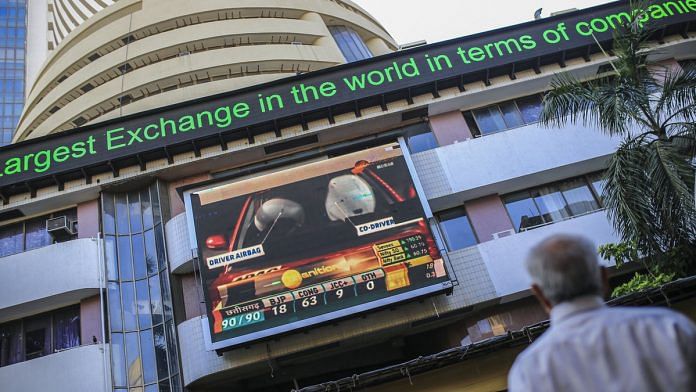Mumbai: The recent record sell-off is a “once-in-a-decade opportunity” for long-term investors to buy India stocks cheaply, according to ICICI Prudential Asset Management Co., the nation’s second-biggest money manager.
“Predicting the market top or bottom is a futile exercise,” said Sankaran Naren, Mumbai-based chief investment officer at the firm, which manages 3.6 trillion rupees ($48 billion) in assets. “Historically, such times have proven to be attractive for long-term equity investing opportunities.”
The S&P BSE Sensex began the new financial year with more losses, hot on the heels of capping its the worst quarter ever on Tuesday. The coronavirus began to spread in India in March, forcing the government to impose the world’s biggest lockdown to contain the deadly pandemic.
The three-week restriction has caused trading volumes to drop as thousands of traders and brokers work from home and banks curtail operations. Relentless selling by global funds — they’ve pulled $7.9 billion in just 30 days — has worsened the pain.
The plunge in stock prices has brought back memories of previous crashes — and the subsequent rebound — during the dot-com bubble and the global financial crisis. The Sensex crashed about 40% over 2000 and 2001, and rallied for six straight years after that. It dived 52% in 2008 only to rebound 81% the following year.
But the current crisis differs because the public health scare has halted a wide swath of small and large businesses.
“Once there is reasonable clarity on the Covid-19 spread trajectory, the focus will shift toward the impact on growth and earnings, which is unequivocally concerning,” Saion Mukherjee, an analyst with Nomura Holdings Inc., said in a note this week. “We expect market volatility to remain extremely high in the near term.”
ICICI Prudential is asking investors to opt for products that make the most of the current volatility through asset allocation and also to “top-up” their regular contributions to mutual funds.
Bargain prices have prompted a number of Indian funds to reopen some existing plans. DSP Mutual Fund and SBI Mutual Fund started again accepting lump-sum investments in funds that focus on small- and mid-sized companies after halting such contributions a few years ago. L&T Investment Management Ltd. launched two new index funds.
“Global central banks along with respective governments have already put out both monetary and fiscal measures to aid in reviving the economy at the earliest,” Naren said by email. “Now is the opportunity to accumulate more units at a relatively lower price.”
Here are some specific ideas from Naren:
- The fund house is buying into this market decline; stocks of various market capitalizations are available at attractive valuations.
- Fixed income is attractive from a short- to medium-term perspective; bonds of up to five-year maturity provide relatively better risk/reward benefit.
- Stay put with existing investments.
-Bloomberg
Also read: This Indian fund manager has been buying stocks every day even as markets tank




The problem in India is young people have long time horizon but no money to invest. Old people have not much time but have money to invest. Trading is in the market and TV channels. In the long term we are all dead. Yup.